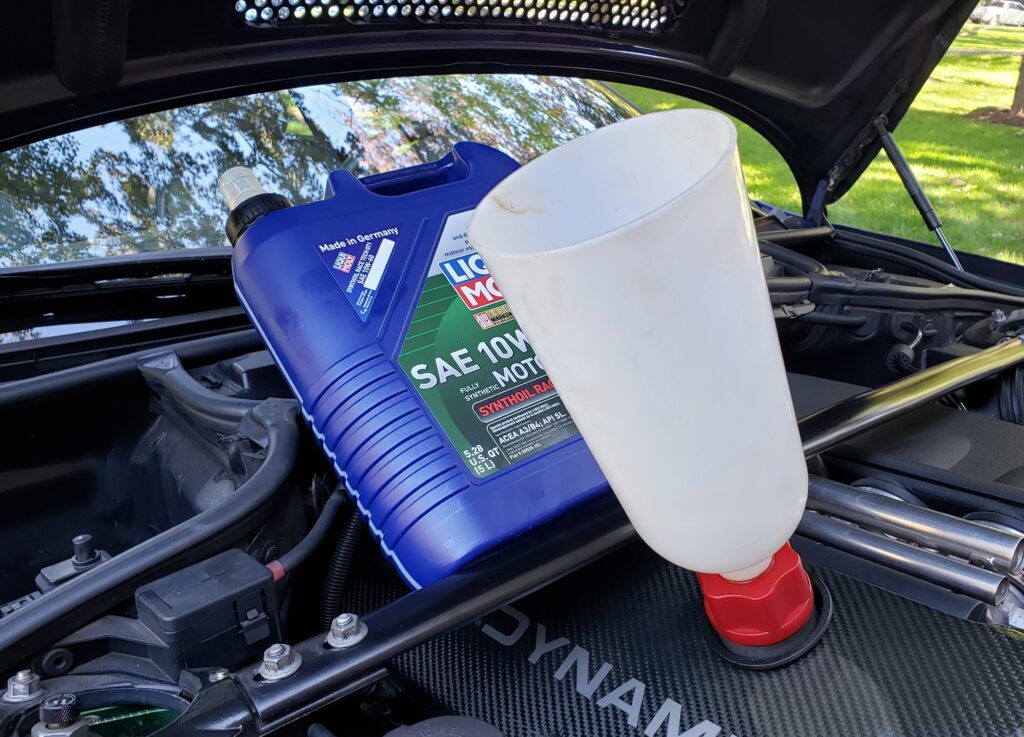
Last week I did an old school oil change in my driveway. I use that term because I’ve become very used to handling DIY work at the events organized by the local National Capitol chapter of the BMW Car Club of America. But of course COVID-19 changed all that and there hasn’t been an event since March.
I sorely missed having a lift and putting the car up in the air. Instead I had to jack up each side of the car and insert jack stands. This wasn’t optimal as the car wasn’t completely horizontal, but I drove the car and got the oil up to temperature before draining to get as much as possible. I use Mahle filters and Liqui Moly oil in the M required 10×60 weight.
The car had about 4,500 miles on the old oil and it had been almost two years since I’d changed it. It was supposed to be a spring job. The other reason I wanted to change it was to run an oil analysis. A company called Blackstone Laboratories based in Indiana takes a small sample and reports on all the elements and properties in your oil. This can help you stay ahead of any issues developing with your engine.
Here’s my report:
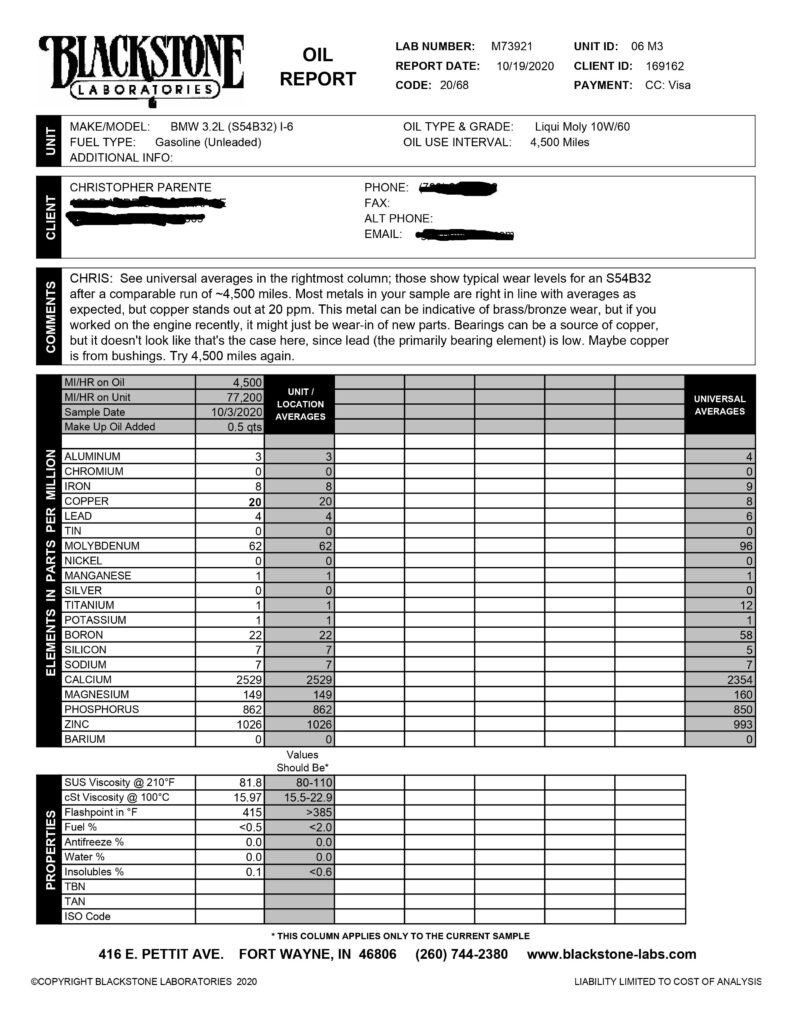 As the comments section states all elements look good except for a high copper reading. Rod bearings are a possible concern item in the BMW S54 engine, despite BMW claiming that the issue had been corrected for 2004 on models of the M3. Fortunately, as Blackstone says if the cause was bearings the lead reading would also be high, and it was low.
As the comments section states all elements look good except for a high copper reading. Rod bearings are a possible concern item in the BMW S54 engine, despite BMW claiming that the issue had been corrected for 2004 on models of the M3. Fortunately, as Blackstone says if the cause was bearings the lead reading would also be high, and it was low.
The top of the engine was off last year when I had the VANOS and a number of other maintenance items done last summer. I’m hoping that’s the cause of the high copper reading, as Blackstone suggests. We’ll find out next oil change, although it will take me some time to drive the car another 4,500 miles.
Here’s hoping it won’t be another old school oil change and that by then things are back to something close to normal.
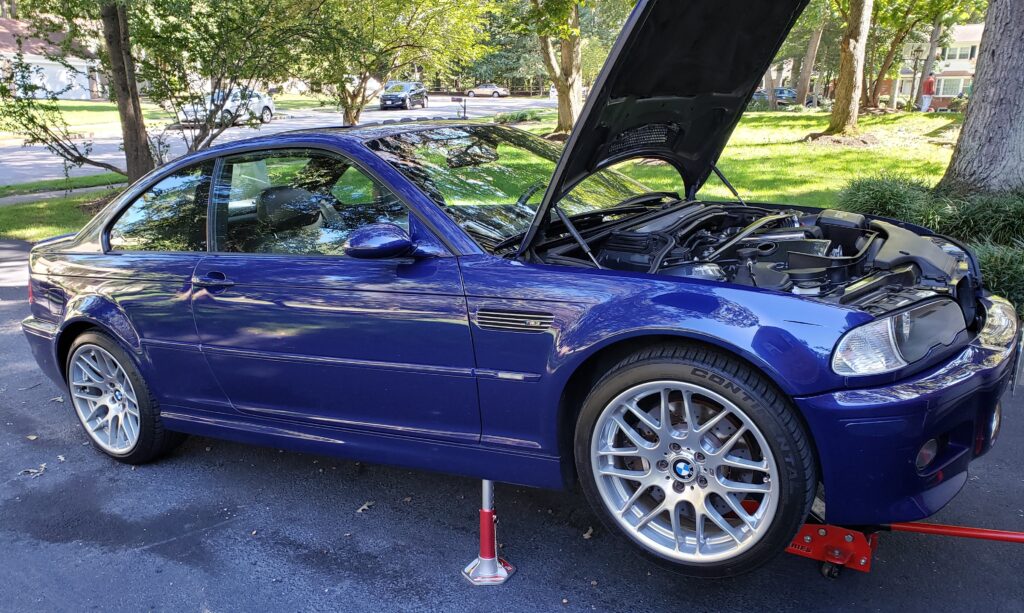
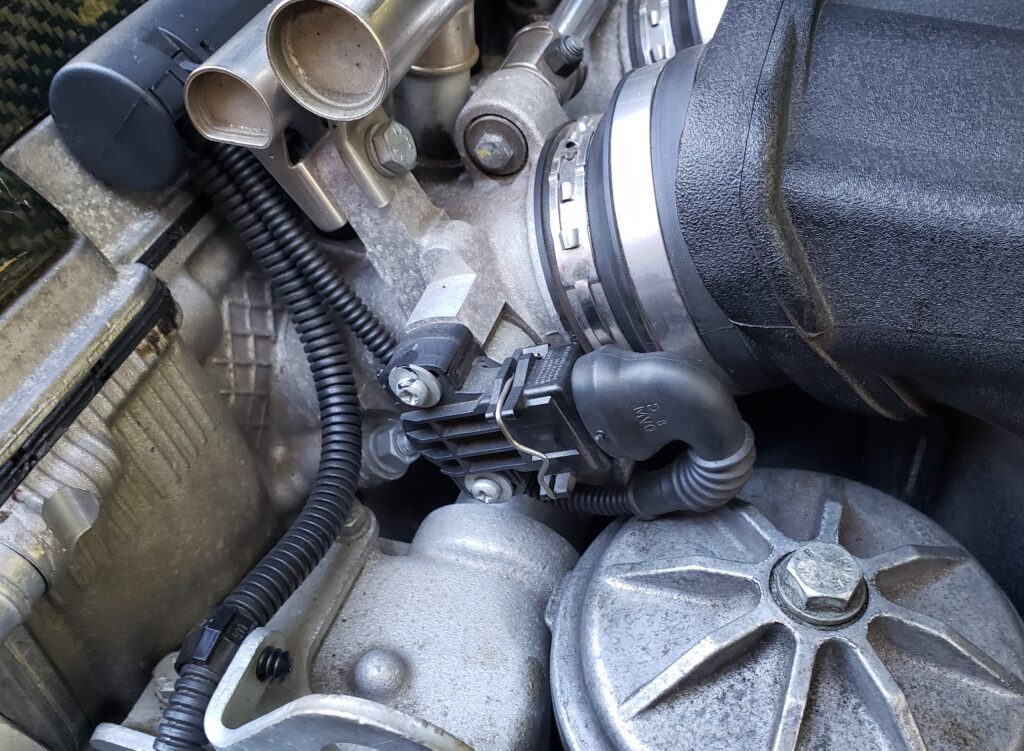
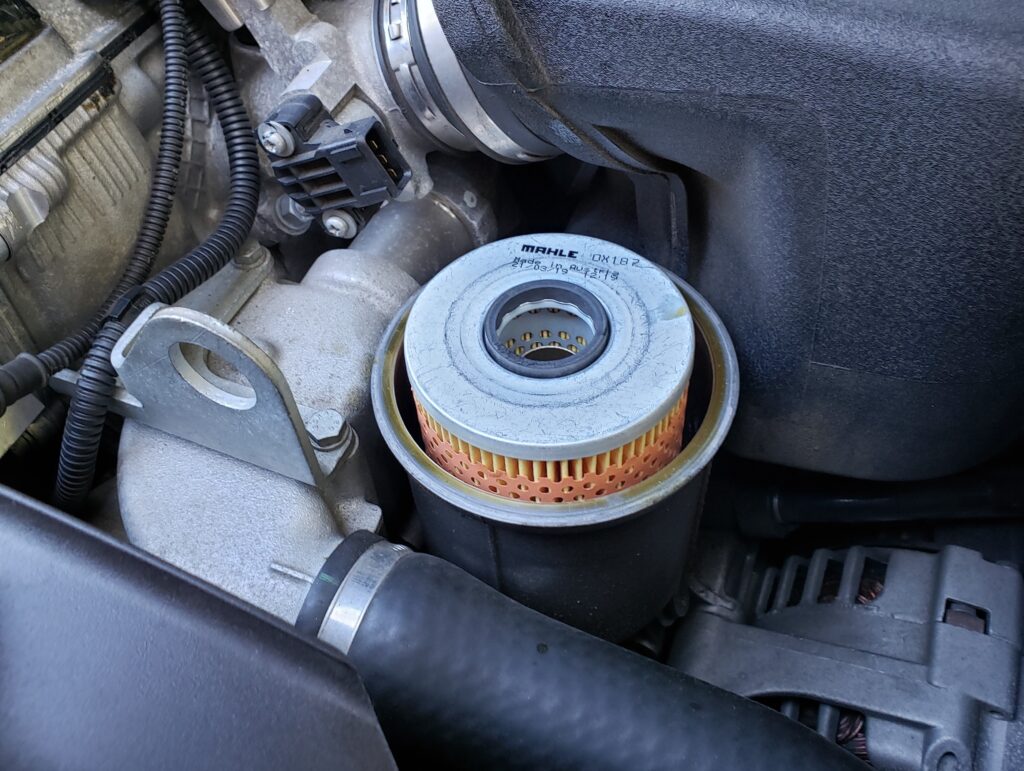
Chris, copper will leach out of cooler lines. That’s what is going on here when you see it by itself. If you had a bearing problem you’d see elevated tin and lead.